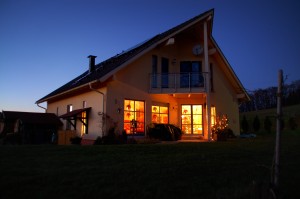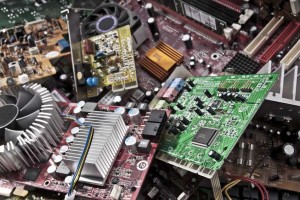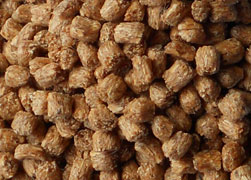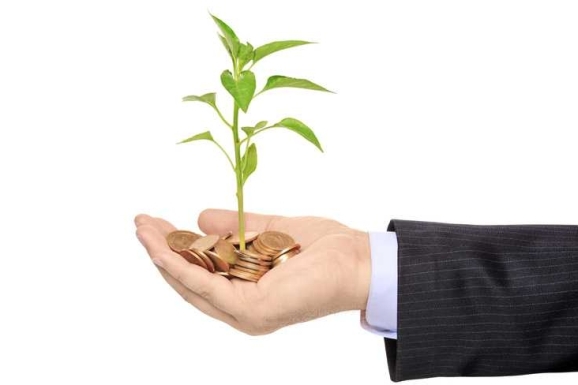Anyone who still thinks that environmentally-friendly resource conservation means doing without is wrong. Energy efficiency and sustainability give companies rock-solid competitive advantages and open up huge markets.
The world’s population is growing, and people are striving for prosperity. These two global megatrends lead to raw materials becoming scarcer and more expensive. Companies throughout the world have to confront these challenges. Therefore, it is becoming accepted that doing business in a way that is environmentally responsible and conserves resources has nothing to do with selfless altruism or image polishing. Rather, it is a successful business model that pays off.
More from less: energy efficiency
It has always been the motto of successful entrepreneurs to reap the same or even higher earnings with fewer expenditures. Heat less and still have it comfortably warm? Building insulation is a wise and forward-looking investment, especially in times of increasing energy prices. Property owners can also substantially increase the long-term value of their property with insulation.

Comfortably warm though barely heated – thanks to building insulation.
Intelligent engineering efforts, particularly in the measurement and control technology and electric motor fields, are making giant steps in the direction of efficient energy use. The GreenTech EC technology from ebm-papst is a good example of this. Customers from all industries do not look only at the purchase price any more. Operating costs, service life, energy usage and raw material consumption play an ever-greater role (keyword: total cost of ownership).
Throwing less money away: recycling management
Waste from the industrial age has a higher yield than any mine. With modern recycling and materials separation methods, you can get 250 grams of gold out of a ton of electronic waste. By comparison: a typical mine manages to yield a mere five grams for every ton of stone – and with much higher energy usage.

A gold mine in the truest sense of the word: electronic waste.
Rare earth materials such as yttrium and neodymium are irreplaceable in production of modern electronics and are found in every mobile phone or television. The demand for such metals is constantly growing. As availability decreases, prices are increasing. With ever-more sophisticated trash sorting facilities and materials separation methods, things we once thought of as rubbish can be brought back into the utilisation cycle, conserving resources.
Plastics from the land: materials and production
Product design is the stage where raw materials can be saved most effectively. Why are there 260 types of plastic installed in a washing machine, if five would also do? The machine would then be easier to recycle. With this in mind, an increasing number of companies are using eco-plastics made from renewable resources such as corn or wood. The wood-plastic compound material developed by ebm-papst, epylen®, is just one example of many innovations in this field.

Plastic from renewable resources: epylen®
Materials resources is another area with huge potential for efficiency. New sheet metal rolling techniques make do with one-third less steel. Another option is to change the machining method. Rather than having sheet metal formed parts punched out with a lot of scrap waste, they can be punched out by laser to the exact millimetre. Companies also save a lot of energy in production with well thought-out factory designs. For example, the ebm-papst plant in Hollenbach, Germany uses the heat given off by the machines in order to heat colder areas of the factory. The success of these and other concepts implemented in an company’s everyday work is being demonstrated by ebm-papst during the green awareness weeks. The campaign, with the slogan “Every Day is a GreenDay” is starting on April 16th in Mulfingen, Germany, from where it will go around the whole world over the course of a year. The green engine of growth Ecology as an economic factor

Leave a comment